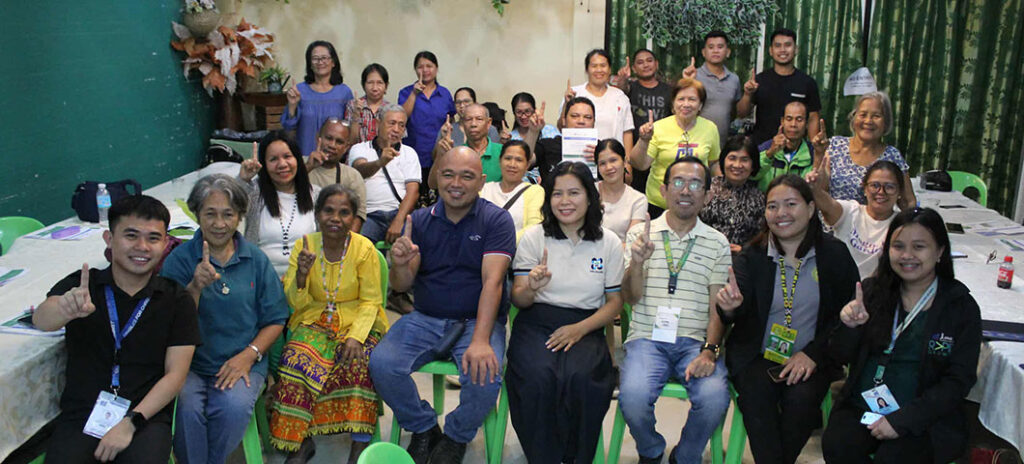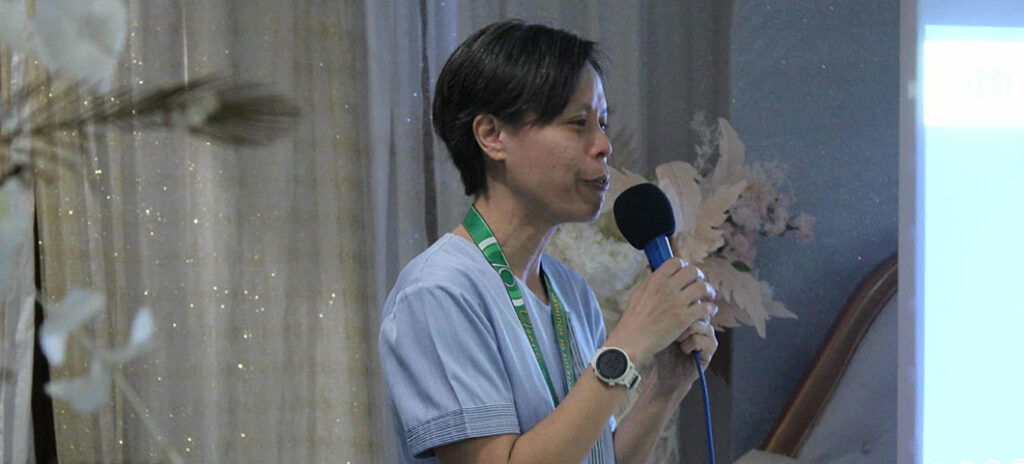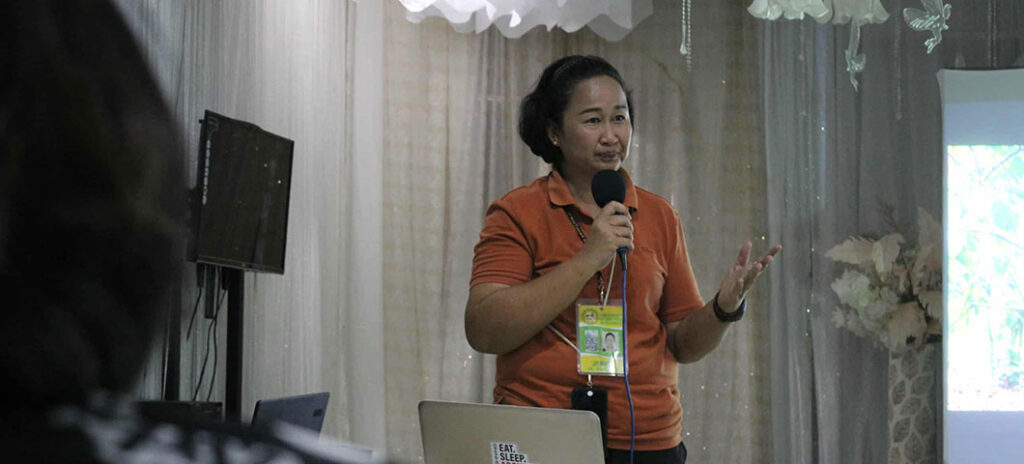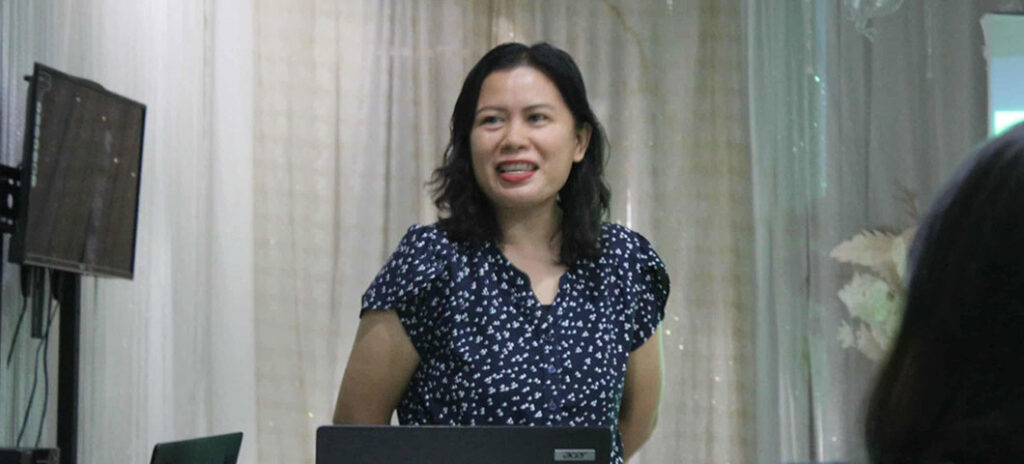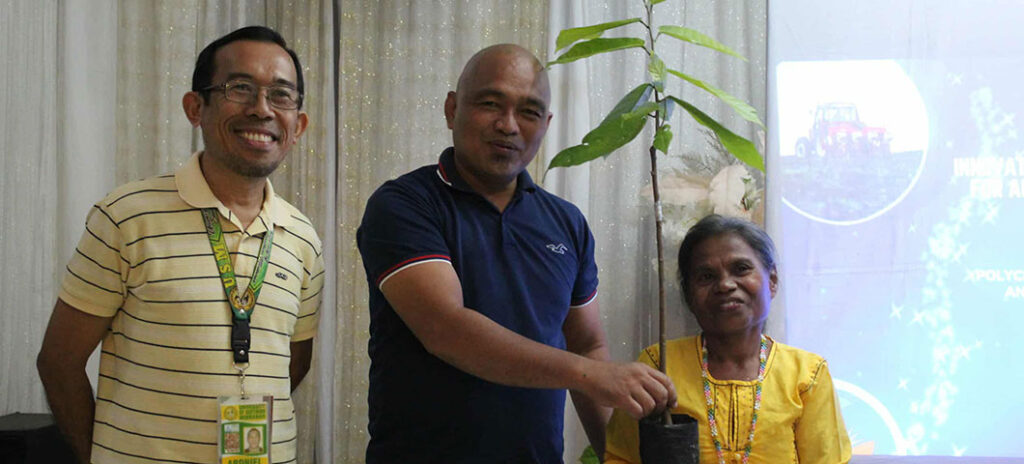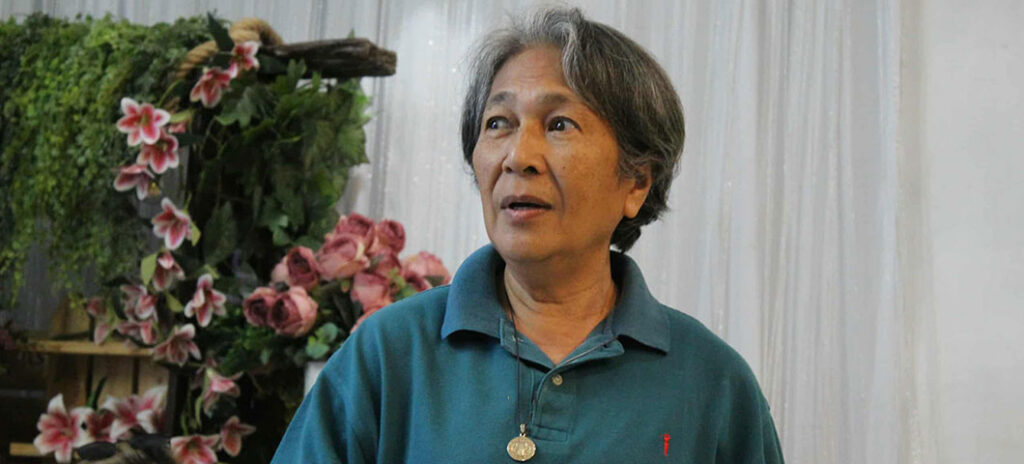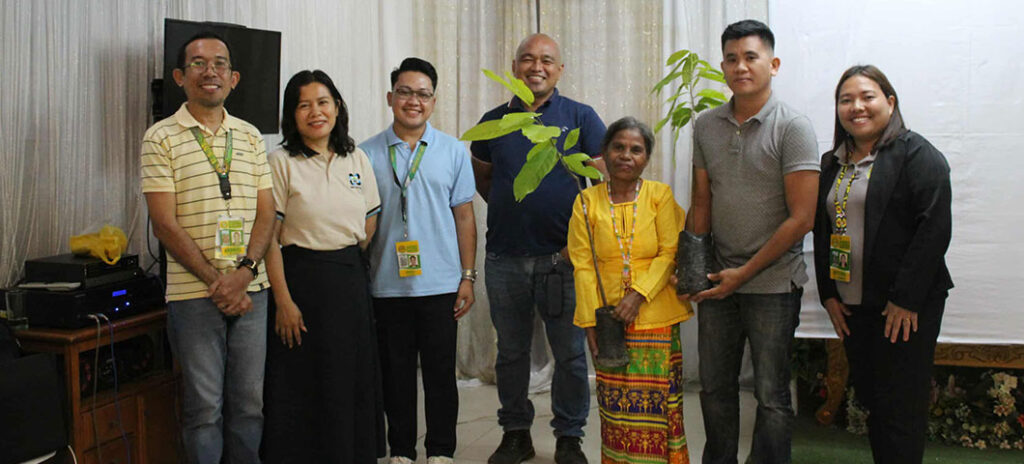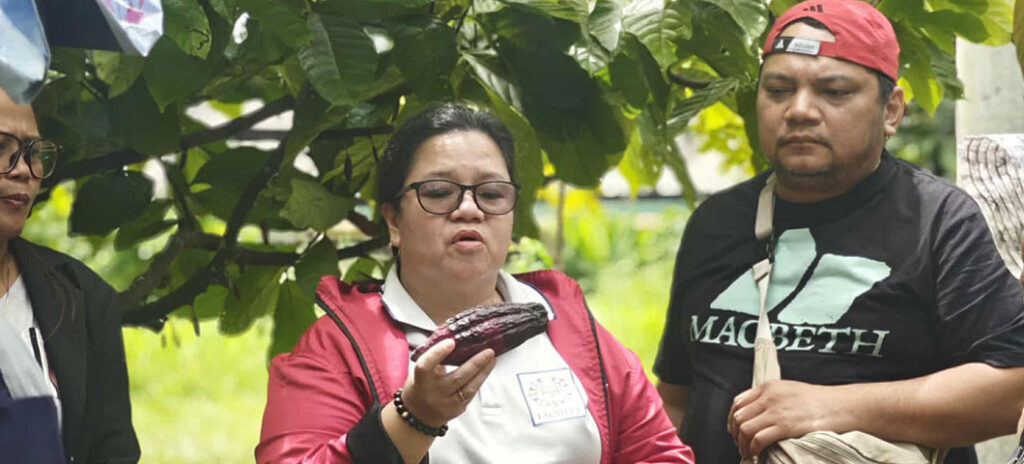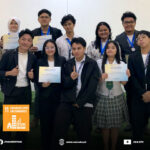
USM Student Innovators Excel at Philippine Startup Challenge 10
October 10, 2025USM Faculty Bags Second Place in Mindanao-wide Technology Transfer Pitching Competition
October 10, 2025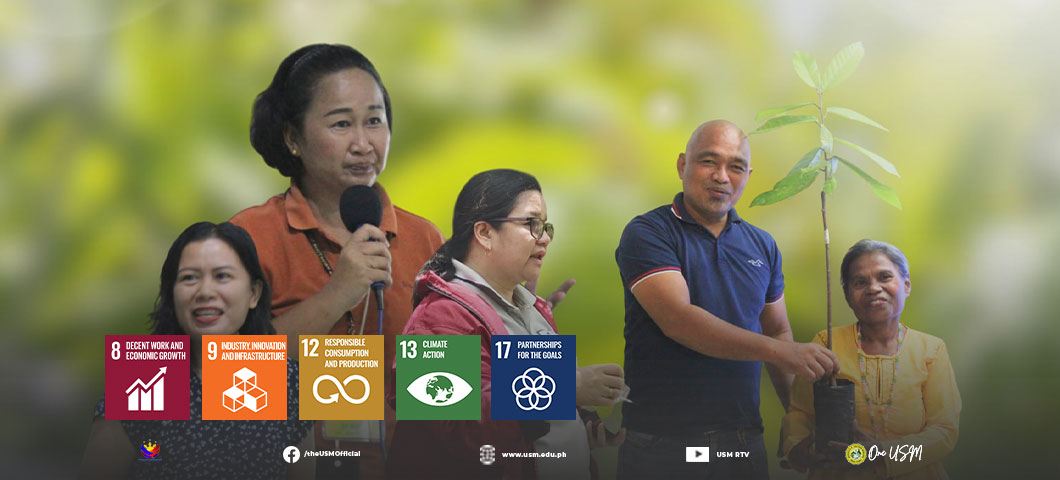
Kabacan, Cotabato – With the aim of introducing climate-smart and sustainable farming practices to advance cacao production in Cotabato province, experts from the University of Southern Mindanao (USM) took part in a three-day training workshop entitled I-TRADE: Polyclonal Cacao Plant Establishment & Integrated Pest and Disease Management (IPDM) on October 7-9, 2025. The workshop introduced polyclonal farming and IPDM strategies through a series of lectures, practical workshops, and site immersions.
The training workshop was made possible through the collaborative effort between the University of Southern Mindanao (USM) Extension Services and the Department of Trade and Industry (DTI) Region XII Rapid Growth Project Team, gathering 30 cacao growers and farmers from the municipalities of Tulunan, Makilala, Midsayap, Aleosan, Antipas, Alamada, and Kidapawan City.
In welcoming the participants, Dr. Debbie Marie B. Verzosa, Vice President for Research, Development, and Extension, urged farmers to apply their learnings to enhance their expertise in new farming technologies and practices.
“Alam ko namang lahat kayo ay hindi na baguhan sa pagtatanim kaya’t china-challenge ko ang bawat isa sa inyo na buksan ninyo ang inyong mga isip sa mga malalaman ninyo, most importantly on what variety should be used and what is the most appropriate layout. Lahat ng mga ito ay makatutulong sa inyo upang madagdagan pa ang inyong mga kaalaman at kasanayan,” she said.
On the first day, USM experts demonstrated their expertise by spearheading a series of lectures: Ms. Janice M. Bangoy, Senior Science Research Specialist II (Polyclonal Farming Principles and Benefits), Dr. Gwen Iris L. Descalsota-Empleo (Clone Selection and Genetic Diversity for Yield Stability), and Dr. Ardniel A. Baladjay (Polyclonal Establishment and Cultural Management).
The training workshop continued on the second day with another meaningful discussion from Dr. Joan Sadoral and Dr. Joseph Castillo, who led the lectures on Introduction to IPDM and Sustainable Cacao Management & Diseases in Cacao and Insect and Pest in Cacao, respectively.
On the third day, the participants were given a tour of the University of Southern Mindanao Agricultural Research and Development Center (USMARDC), where they participated in a hands-on workshop on cacao clone characterization, planting material preparation, nursery management, and field layout. The workshop and site tour was conducted to guide the participants in determining the most appropriate cacao varieties, ideal for farming based on climatic and soil adaptability, yield potential and productivity, and market demands.
The activity continued in the afternoon with a raffle program and a knowledge-sharing among the stakeholders. Three of the participants received cacao planting materials from USM.
Rosemarie Cervantes, one of the cacao farmers in Makilala, expressed her gratitude for learning new strategies and practices in farming. For her, the site visit sparked her motivation to do better by integrating sustainable practices into her farm.
“Dahil talaga sa site visit, nakita ko na ang daming bunga ng mga cacao sa USM kaya na-inspire ako. Ang dami kong nalaman, lalo na sa mga insects na friendly and not. Natuto akong mag-pruning at i-identify ang itsura ng mga cacao na may sakit. Nalaman ko rin na bawal pala magsunog. Dahil sa lahat ng aking natutunan, now I am ready to go back sa aking farm and do my job,” she said.
Hazel Shayne Ramil, DTI Region XII Rapid Growth Project-Value Chain Facilitator, concluded the program as she delivered her closing message, hoping for future collaborations aimed at improving the economic well-being of the cacao farmers.
“We would like to express our heartfelt gratitude to our partners, to USM and most especially to our farmers. I hope that this is not the last time to collaborate with USM because we believe that we still have future projects with your institution, projects that aim to promote sustainable farming that help our farmers generate more income. Maraming maraming salamat and God bless us all,” she said.
The training workshop underscores the importance of promoting sustainable strategies to a growing community of cacao farmers through a collaborative effort between organizations and agencies. By tapping the cacao experts from USM, the training not only foresees more growing cacao trees but also a growing community of cacao farmers that integrate new sustainable ways in their farming culture.
